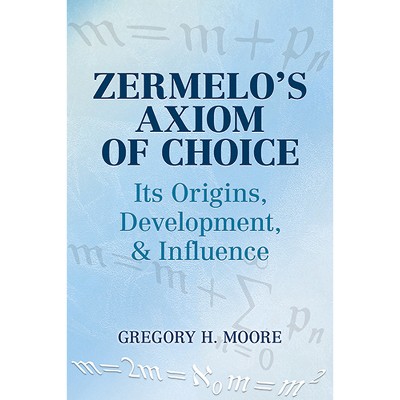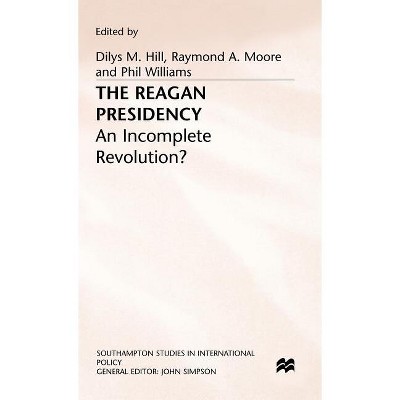Sponsored

Defining and Defending the Open Door Policy - by Gregory Moore (Paperback)
$57.99
In Stock
Eligible for registries and wish lists
Sponsored
About this item
Highlights
- This is the first in-depth study of Sino-American relations during the Theodore Roosevelt administration.
- About the Author: Gregory Moore is professor of history, director of the Center for Intelligence Studies, and chairperson of the Department of History and Political Science at Notre Dame College.
- 252 Pages
- History, United States
Description
About the Book
This is the first in-depth study of Sino-American relations during the Theodore Roosevelt administration. In its examination of the issues and problems that arose in U.S.-Chinese relations during this time, the book argues that a stereotyped perception of China and its people ...Book Synopsis
This is the first in-depth study of Sino-American relations during the Theodore Roosevelt administration. In its examination of the issues and problems that arose in U.S.-Chinese relations during this time, the book argues that a stereotyped perception of China and its people inhibited American policy responses during Roosevelt's presidency.Review Quotes
Divided into an introduction, seven chapters, and a conclusion, this monograph fills an important gap in our understanding of Roosevelt's support, and in some unfortunate ways lack of support, for the Open Door Policy.
Gregory Moore has produced a study of the geopolitics of America's 'Open Door' policy towards China that is as rich in historical detail as it is important for contemporary thinking about American foreign policy. The book's conclusions about how the United States frequently does not adequately understand the cultures it is dealing with in its foreign policy is an ongoing lesson that contemporary decision-makers need to heed. This book is a must read, not only for students of U.S. foreign policy and Asian international history; it also will be a vital resource for contemporary policymakers seeking to understand the historical trends which shape today's international environment.
Moore unravels the complicated legacy of the history and evolution of the US Open Door Policy in China, 1901-9. Making extensive use of archival sources and noting how broader global events and challenges at home helped influence and shape US foreign policy objectives in Asia, Moore argues that Theodore Roosevelt's administration pursued reactive rather than proactive foreign policy objectives in Asia. Given the limited US presence in China, Roosevelt pragmatically championed equal commercial opportunity in China while paying lip service to preserving China's territorial integrity. Recognizing Japanese interests in the region, the Roosevelt administration adapted the Open Door Policy to cultivate Japan as a buffer to check Russian ambitions in the region, thereby minimizing the risk of US military intervention. Moore concludes that the Roosevelt administration, though pragmatic, dealt with China from a limited, stereotyped point of view that failed to perceive the revolutionary forces and sentiments that were surfacing there. As a result, policymakers' appreciation of events taking place during the waning years of the Qing Dynasty was limited, and hindered the development of a more proactive foreign policy. Summing Up: Recommended. Most levels/libraries.
Professor Gregory Moore adds welcome detail to our knowledge of President Theodore Roosevelt's approach to the China question from 1901 to 1909. Drawing on archival evidence, his book brings together generations of scholarship in the English speaking world on how Roosevelt shaped America's Open Door policy during the last years of the Qing.
Professor Moore has been successful in illuminating two "foreign" cultures--China and US foreign policy making--which are often poorly understood by outsiders. Although the events he discusses happened more than a century ago, the issues covered are still having an impact today in both cultures.
Where the book makes its most significant contribution is on the Taft-Katsura memo and Root-Takahira agreement. Moore does well exhibiting the historiographical debates over the informal/formal nature of the Taft-Katsura memo. He provides a contextualized and balanced view of the American-Japanese relations, and illustrates the diplomacy of Root in 1908 with State Department sources that add to our knowledge of the Takahira agreement. . . .Defining and Defending the Open Door Policy...demonstrates the chaos of geopolitics and how local, seemingly unimportant, events shape policy.
About the Author
Gregory Moore is professor of history, director of the Center for Intelligence Studies, and chairperson of the Department of History and Political Science at Notre Dame College.Dimensions (Overall): 9.0 Inches (H) x 6.0 Inches (W) x .57 Inches (D)
Weight: .82 Pounds
Suggested Age: 22 Years and Up
Number of Pages: 252
Genre: History
Sub-Genre: United States
Publisher: Lexington Books
Theme: 20th Century
Format: Paperback
Author: Gregory Moore
Language: English
Street Date: March 27, 2017
TCIN: 1006894644
UPC: 9780739199978
Item Number (DPCI): 247-14-0155
Origin: Made in the USA or Imported
If the item details aren’t accurate or complete, we want to know about it.
Shipping details
Estimated ship dimensions: 0.57 inches length x 6 inches width x 9 inches height
Estimated ship weight: 0.82 pounds
We regret that this item cannot be shipped to PO Boxes.
This item cannot be shipped to the following locations: American Samoa (see also separate entry under AS), Guam (see also separate entry under GU), Northern Mariana Islands, Puerto Rico (see also separate entry under PR), United States Minor Outlying Islands, Virgin Islands, U.S., APO/FPO
Return details
This item can be returned to any Target store or Target.com.
This item must be returned within 90 days of the date it was purchased in store, shipped, delivered by a Shipt shopper, or made ready for pickup.
See the return policy for complete information.











